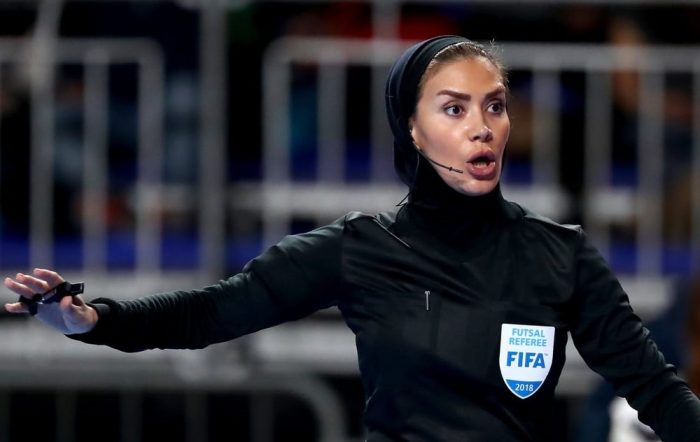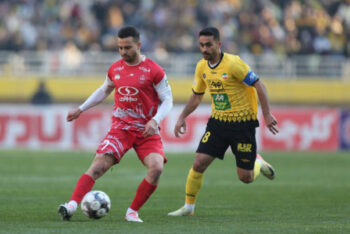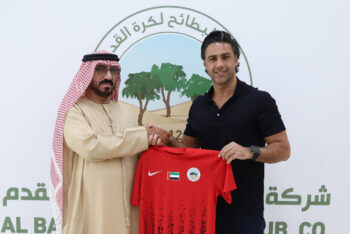Gelareh Nazemi, Iran’s refereeing pioneer [Interview]

Tehran Times – BUENOS AIRES, Sitting in a lounge on the 24th floor of a hotel in central Buenos Aires, Gelareh Nazemi conveys a certain shyness, which stands in contrast to the confidence she demonstrates when dealing with matters on a futsal court.
But, contrary to being interviewed, refereeing is a passion for Nazemi, who is the first Iranian to officiate at a FIFA-run futsal tournament.
A veritable trailblazer in her homeland, the 34-year-old has exhibited proficiency on the court and has been selected to referee the final of the Youth Olympics Women’s Futsal Tournament Buenos Aires 2018 between Portugal and Japan, which takes place on Wednesday in the Main Futsal Hall.
At these Youth Olympic Games in Argentina, she, as well as her five female colleagues – six of the 24 referees appointed were women – have overseen women’s and men’s matches. In fact, Nazemi was the woman in the middle during the crucial men’s Egypt-Slovakia group match which sealed the Africans’ passage to the semi-finals.
FIFA.com chatted with the Iranian official to find out a little more about her career path, covering topics such as choosing futsal over football and her situation today, where she is one of many female referees working under the auspices of the Football Federation Islamic Republic of Iran.
FIFA.com: How are you enjoying your experience in Buenos Aires?
Gelareh Nazemi: It’s a very important assignment: the best referees from each country are here and the level of competition is very high. I’m happy.
Why did you want to become a referee?
About 15 years back, I was playing football in Iran when my brother, who was a referee in the SuperLiga, urged me to give it a try. He said, “You can do it, you can be one of the first”. In Iran, the first group of female referees only got started 15 years ago.
Why did you choose futsal over football?
Because futsal in Iran is played to a really high standard, higher than football. To start off with, I refereed football matches, but it wasn’t enough for me. In futsal, we’re the number one team in the AFC; it’s a very good level. It was a way of improving – futsal enabled me to develop my refereeing.
How difficult was it to break through?
At the beginning it was hard, but just like in any other country, if you want something enough, you can do it. People, especially men, have often said that women aren’t good referees. But in order to stick with my decision, it was important to me to tell them and show them that I could do it. I used it as a motivating tool. And my brother and family were very supportive. That was very important.
Did you ever think about giving up?
Yes, it crossed my mind because I was worn out. I didn’t have any support in my country, but it made me stronger. You can and should do what you want to do. And I wanted to demonstrate, particularly to men, that I was able to do it. I did it alone, but I tried and succeeded.
How did the careers of the women who started at the same time turn out?
There were seven or eight other female referees, but they all gave up because of how difficult it was. Their families or husbands didn’t accept it, they didn’t understand why they wanted to travel around just to referee. In Iran, if you want to referee as a woman, you need your spouse’s permission and so many of them got left behind. Today, things have changed, and there are three different futsal divisions just for women. There are 50 referees in the top division and about 100 across the whole country.
Do you feel like you’re a pioneer?
I do see myself – and the other female referees back home – in that way, yes. There are a lot of them who are keen to develop. When I was called up to this tournament, perhaps at the beginning it wasn’t looked upon as a positive thing, especially by men. But after this appointment, and others within the AFC, my countrymen saw the progress I was making and accepted it. Now they believe in me and trust me.


 (4 votes, average: 4.75 out of 5)
(4 votes, average: 4.75 out of 5)

